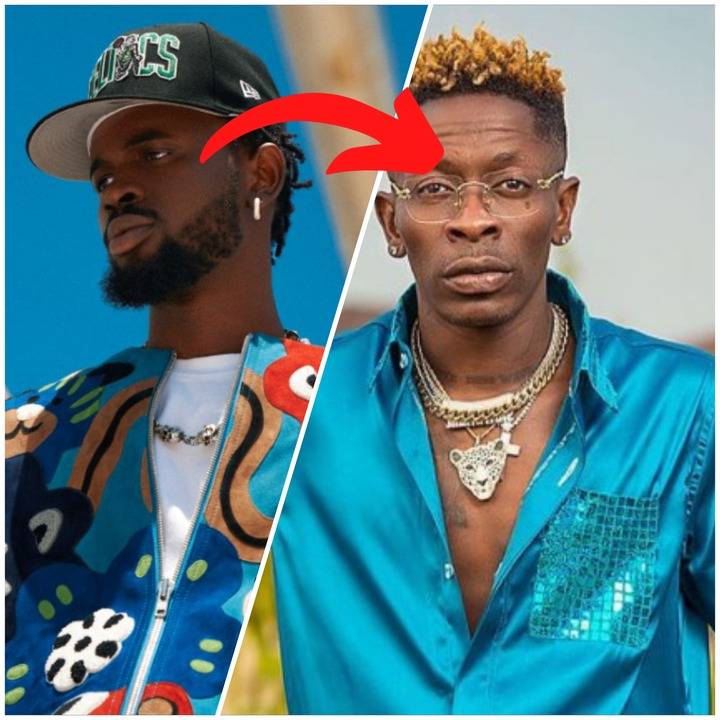Ghanaian music star Black Sherif ignited a lively debate on social media following a controversial tweet from fellow artist Shatta Wale about illegal mining, or galamsey. Shatta Wale's tweet suggested that galamsey was not responsible for the degradation of Ghana's water bodies, which drew significant criticism online. Black Sherif responded by emphasizing the deeper societal issues at play, arguing that the normalization of illegal mining has led to misguided beliefs like those expressed by Shatta Wale.
Shatta Wale, known for his outspoken nature, downplayed the environmental impact of galamsey in his tweet. He claimed that the pollution of Ghana's water bodies was not a result of illegal mining but rather a long-standing issue, urging an end to the blame game. His tweet stated: "Galamsey can't spoil our water. What's destroying our water bodies has been happening for a long time. Let's stop the blame game and face the reality."
This statement prompted backlash from environmental activists and citizens who pointed out that illegal mining significantly contributes to deforestation and the pollution of rivers across the country.
In his response, Black Sherif offered a more critical perspective, suggesting that while he wouldn’t directly condemn Shatta Wale, the issue lies with the country's leadership for allowing illegal mining to become so entrenched that public figures feel free to defend it. He stated, "I don’t blame Shatta Wale for his comments on galamsey since he benefits from it. I blame our leaders for making illegal mining so normal that people feel confident posting about it. It may not affect you now, Shatta Wale, but when karma hits, you’ll realize the mistake you’ve made."
His comments reflect widespread frustration among Ghanaians regarding the government's inability to tackle galamsey effectively. Black Sherif's remarks underscore a systemic issue—the acceptance of illegal mining as a legitimate source of income, despite its severe environmental impacts.
Galamsey, which involves small-scale illegal mining, has long troubled Ghana's environmental authorities. This practice, often conducted in rivers and forest reserves, has led to significant pollution through harmful chemicals like mercury contaminating water sources. Communities dependent on these rivers for drinking water and agriculture are suffering the most, often forced to seek alternative water supplies.
Government efforts to combat galamsey have faced criticism for being insincere and ineffective. Despite occasional crackdowns and the establishment of task forces, the practice persists, largely due to corruption and the involvement of influential individuals.
Black Sherif’s response is significant as it shifts focus from Shatta Wale’s personal views to the broader issue of leadership failure. By not blaming Shatta Wale directly, he implies that public figures are merely reflections of a larger societal problem, placing responsibility on Ghana’s leaders for their failure to safeguard the environment and enforce relevant laws.
His mention of "karma" serves as a poignant reminder that while the effects of galamsey may not be immediately visible, they will inevitably manifest in the future. Although some individuals may benefit from illegal activities in the short term, the long-term consequences for the environment and economy are profound.
Black Sherif’s position resonates with many young Ghanaians increasingly frustrated with the government’s inaction against illegal mining and environmental degradation. His voice contributes to a rising call for accountability and sustainable practices to protect Ghana's natural resources.
The exchange between Shatta Wale and Black Sherif has sparked extensive discussion on social media, with many praising Black Sherif for using his influence to raise awareness about environmental issues. Others, however, defended Shatta Wale's right to voice his opinion, highlighting the divided public sentiment surrounding galamsey.
This incident underscores the role of artists and public figures in shaping societal discourse. In recent years, many Ghanaian musicians have leveraged their platforms to address significant social and political issues, from corruption to inequality. Black Sherif's engagement in this dialogue reflects a broader trend of artists actively participating in social and political conversations.




No comments yet
Be the first to share your thoughts!